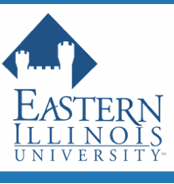Supporting First Generation College Students in the Applied Music Studio
Start Date
16-10-2020 10:00 AM
End Date
16-10-2020 10:50 AM
Document Type
Presentation
Abstract
In this presentation we will explore the ways in which applied music faculty may be uniquely positioned to meet the needs of first-generation college students—students for whom neither parent completed a bachelor’s degree. Though numbers vary by institution, this group currently represents around 56% of the national undergraduate population. (NASPA) Many scholars have investigated this diverse group of students, noting significantly lower rates of graduation and economic disparities between them and their continuing generation peers. While many colleges and universities have campus-wide supports for first generation students, research suggests that intervention should be crafted around characteristics such as race, region, and degree program. Little exists on this topic in our specific field of music, and in this session, we will turn to the research in other fields, along with our experiences at R2 and M1 universities, to provide practical strategies for applied faculty and to chart a course for further research in this topic in our field. We believe that the individual teaching model of applied music has the potential to increase effectiveness of interventions and music programs as a whole can help to integrate students more fully into universities. We believe some of these ideas can be applied to supporting first generation college students in other disciplines, and believe that participation in music programs can help students in other majors integrate into college life.
Creative Commons License

This work is licensed under a Creative Commons Attribution-Noncommercial-No Derivative Works 4.0 License.
Supporting First Generation College Students in the Applied Music Studio
In this presentation we will explore the ways in which applied music faculty may be uniquely positioned to meet the needs of first-generation college students—students for whom neither parent completed a bachelor’s degree. Though numbers vary by institution, this group currently represents around 56% of the national undergraduate population. (NASPA) Many scholars have investigated this diverse group of students, noting significantly lower rates of graduation and economic disparities between them and their continuing generation peers. While many colleges and universities have campus-wide supports for first generation students, research suggests that intervention should be crafted around characteristics such as race, region, and degree program. Little exists on this topic in our specific field of music, and in this session, we will turn to the research in other fields, along with our experiences at R2 and M1 universities, to provide practical strategies for applied faculty and to chart a course for further research in this topic in our field. We believe that the individual teaching model of applied music has the potential to increase effectiveness of interventions and music programs as a whole can help to integrate students more fully into universities. We believe some of these ideas can be applied to supporting first generation college students in other disciplines, and believe that participation in music programs can help students in other majors integrate into college life.





Speaker Information
Rebecca Johnson
Assistant Professor of Flute, School of the Arts, Department of Music, Eastern Illinois University, SelectedWorks
Elizabeth Sullivan
Assistant Professor of Oboe and Musicianship, University of North Carolina at Charlotte, Charlotte, NC
Brian Sullivan
Independent scholar